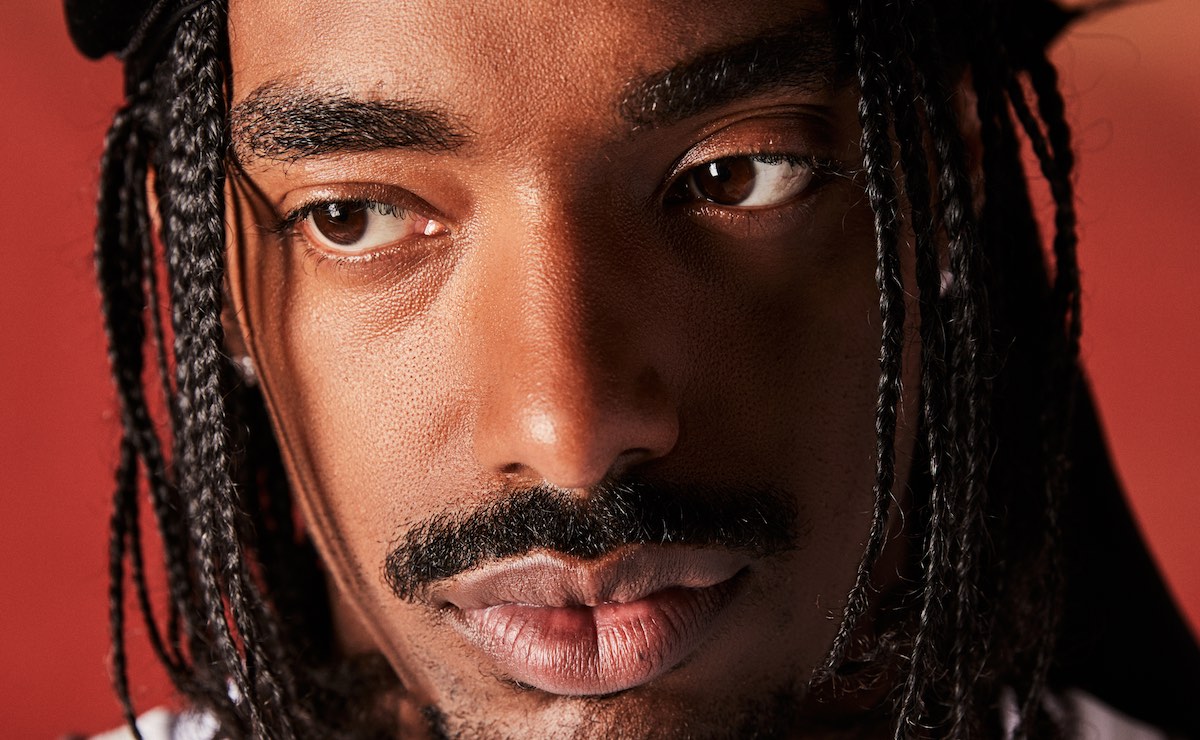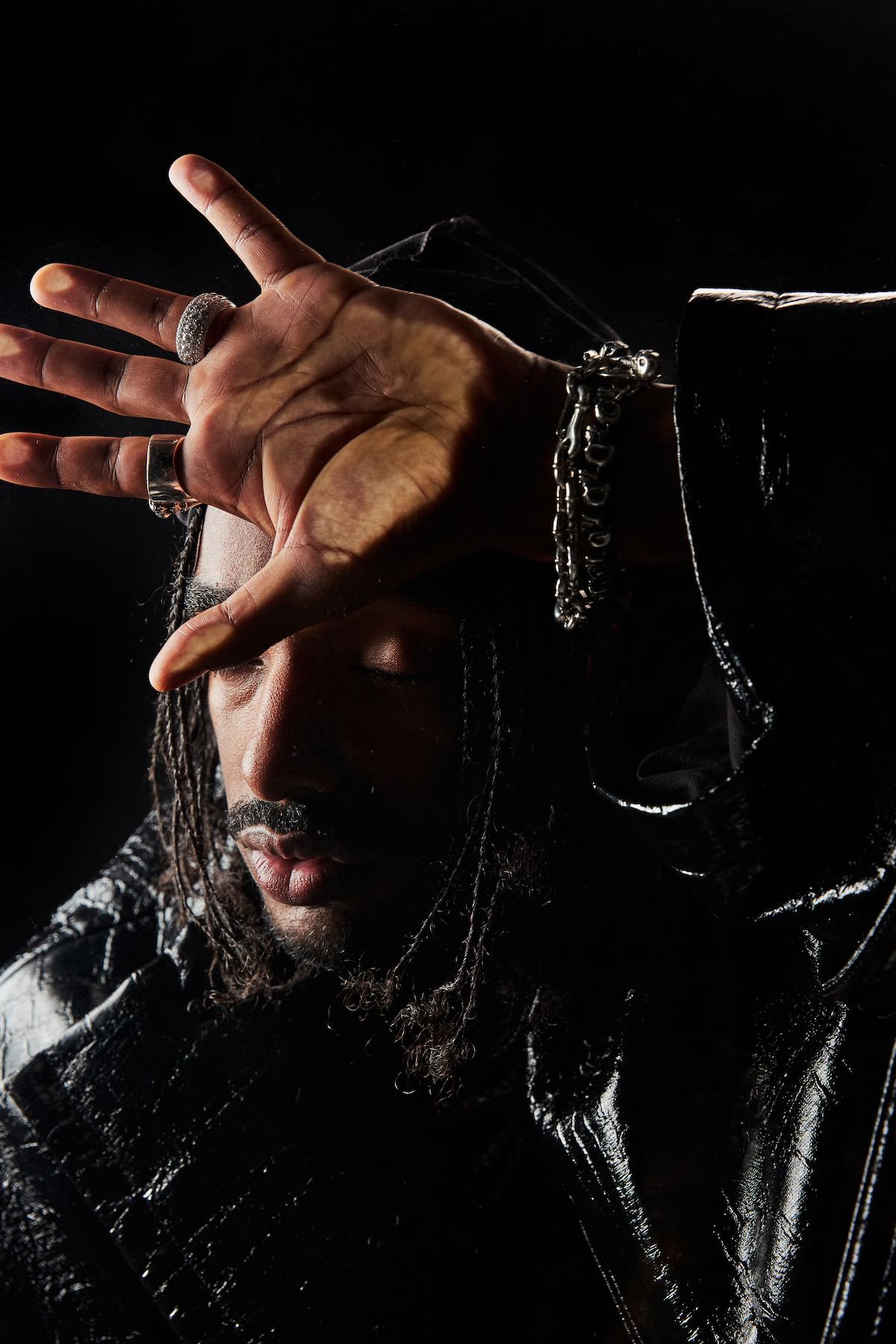
Following an array of releases from his 2023 showings, “Sandman,” “All White,” “Sunset,” and the latest single, “Stars,” via Arista Records. The introspective mind of the chart topping artist/producer Tai Verdes talks with Variance's Ethan Ijumba about his latest singles, self-expectations for his career, and opportunistic ventures when it comes to art, music, and television. Be sure to read their full conversation below, as well as follow Tai Verdes on Instagram and TikTok for more updates, releases, and related news.
EI: For years, you've had a huge following. We've known you from reality TV, from your music that went viral on TikTok, all that good stuff. Recently, your singles “All White”, “Sunset”, and “Stars.” Where exactly did the influence of “All White” come from?
TV: I think it was like the amalgamation of all the songs I've written about relationships mixed with the musicality that I try to infuse into all my projects production-wise because I produce everything. I think that what I really wanted to do was put a cherry on top of the era of writing a song specifically about a girl and, you know, transition into new projects.
EI: With that being said, you talked about how you do your own production and how you're a multi-instrumentalist. I believe you play a ukulele piano, and guitar for a little bit, right? With that being said, all the different facets you have as an artist, do you ever feel that you're still trying to improve or become better at one specific role? Or do you feel that when it comes down to it all, you feel like you're checking all the boxes, whether it's the songwriting, the producer aspect, engineering, or even just singing? Do you feel that there's still an area you're trying to grow as an artist?
TV: I think every area I wanna always grow in all capacities. But it's not necessarily thinking that I'm lesser or greater. It's just thinking about zooming out and looking at the larger scope of what is my final goal. Just to grow in general, so that spectrum of growth is however long that I stay at making art. So, I just try to extend it out as long as possible and keep improving.
EI: An interesting thing you pointed out is that the main thing you're trying to make is art. I feel like the thing that gets lost in translation is when you get categorized and people try to label you a certain genre. Do you feel that you're being unrecognized or miscredited for some impacts that you’ve made due to the music you create?
TV: I think that if you stop making things, then you allow people to categorize yourself. If you look at just thinking about Miley Cyrus. If Miley Cyrus stopped making music after Disney Channel, then she'd be a Disney star, but now she's an internationally acclaimed businesswoman and icon. Or if Kendrick only came out with music like Overly Dedicated, he wouldn't be Kendrick Lamar anymore. I think that there's always this narrative where they're counting you out, or you're the underdog. Being on top comes with a heavy is the head that wears the crown. It’s a very, interesting place to be at because there are no breaks.
EI: It's like a gift and a curse in a way.
TV: It is a gift and a curse and I do understand the responsibilities of having a brand and a platform. But I think that the more that people call me an underdog, the more that I feel good because it makes me motivated in my own way. It really lets you know who is with you in the long run, who can see the vision and then who can't necessarily see the vision. But at the end of the day, it's just about you making things like being in control of your art.
EI: Do you feel that when it comes to the labels that you get, or do you normally just ignore it and don't let it sit with you or do you label yourself in another aspect other than an artist?
TV: I don't think labels necessarily exist because, at the end of the day, opinions aren't real; you can't hold them or touch them. So, I don't even involve myself in the discourse of what people are talking about. I am kind of just involved in the discourse that I have going on inside my head of like, how do I make this better? It's a very toxic situation because labels that you're making, there's always two sides to it, especially if you're making something that's polarizing. There's always gonna be someone who doesn't like it, always gonna be someone who likes it. So I think that I'm not even thinking about the music business. I just started a production company trying to make, I'm directing my own videos and basically making all my own content and creative directing myself and putting the artistic vision and the visuals forward. For me, it's not just the music business. If you're only thinking about music and you're an artist, then I already beat you. I'm already thinking about the visuals, the marketing schemes, I'm thinking about how I can, you know, expand between just to make it feel like a brand and not just music in general.
EI: Do you feel that your sound now in the music you've been making lately has been more about the viral chase to find that next hit single on the song that will be trending and take over the TikTok atmosphere, or do you feel like now as an artist, you're at this point where you're just focused on making music that you enjoy or songs that everyone enjoys for that matter?
TV: Honestly, neither, I'm just trying to impress my 17-year-old black boy self at the end of the day. Because that's the biggest critic; that's the people who actually move culture, as in the young black kids in America, where it's kind of our job to make culture. Having the ability to move culture with your ideas and your perspective and packaging it in a way that I've seen, from artists like Childish Gambino, Kanye, and Chance The Rapper. Having that perspective bottled up and packaged in such an artful and vulnerable brand. I think that those artists knocked that out of park consistency wise. That's what builds up a brand, that's what builds up a movement and albums like Acid Rap, or Awaken My Love, you know, it makes everything I just know the power that I have by trying to impress a specific person, and that is myself.

EI: Do you feel that with all those cultural impacts? That one day one of your big goals is to have that in your career as an artist is to create something that not only people will listen to but also gravitate those to come together and create a different kind of. I don't want to use the word trend, but just a wave we've seen a Kanye album, create a new wave of artists. We've seen how Yeezus has impacted a group of artists. Do you feel like one of your goals is to create a new wave of artists that can impact other listeners to want to become artists themselves?
TV: Yeah. I don't think I have to shoulder the entire wave because I think that people are out here coming out and doing things that are really amazing. You have Aminé, KAYTRANADA, Teezo Touchdown and all these people that are really kind of pushing what an artist can be in 2023. For me it's just about creating my own sect within that push.
EI: Aside from that, you've been releasing a lot of singles lately such as “Sandman” and “All White,” and you got a lot of new music that we have yet to expect. Is there anything that fans can expect in terms of how your new music will be like?
TV: I would say, don't listen, because they're not ready. I've been putting a lot of time into every single moment that is created. Kind of like Tyler, The Creator says about how he loves moments. I love moments, that happen in the album or in the project that I'm making that impress me. I think I'm the biggest critic, and having that aggressive inside your head, what I'm trying to do is curate myself because, at the end of the day, I haven't released an album in what's gonna be like two years. So I don't take people's time lightly, like everyone has their own lives and problems to deal with. If I'm gonna take your time away for 45 to 55 minutes or however long the typical project is, the cover art, the videos, and every second of the audio should be so engaging that you feel like you're trapped in the world. It feels like escapism, and that's what people really want. I know that when I was driving to practice at 5 A.M., going with my brother, we would just listen to Acid Rap because we were trying to escape our early morning cold drive and be transported into a world that was a little bit more dreamy, unrealistic, a little bit more honest, vulnerable, real exciting for the time that we had. It also makes you feel like you have powers; that's what I think that when you listen to stuff that really feels like it connects to you, it gives you a superpower. I know that when “No Problem” was on the radio, any time it came on the radio, I was like, oh, I got superpowers right now. It wasn't a song that got me in my feels or whatever. I'm just trying to give people superpowers.
EI: To root back a bit to the question about labels and more so also just the overall how people see you as like this specific artist and how you get categorized, but you refuse to categorize yourself. When it comes to your career do you feel that people take a minute to take you seriously? Do they ever think you're just a TikTok or reality TV star? And then you show and prove that you've got all of these other lanes of what you are and all these factors that you can do more than whatever they've seen you as.
TV: Yeah, but that's the fun part: I've been doing it this entire time. Ever since I dropped out of college, we were just like, this n***a is dumb. Like no, I wasn't dumb I was trying to do other shit. I had other versions of myself that I wanted to be, that I wasn't getting fulfilled at that time. Dropping out of college, everyone was like ok, what is he gonna do now? Then, I'm on a reality TV show, and now I'm a reality TV star at 21. So then I go to college parties, and people are pointing me out like this is a reality TV star. Then, after that dies down, you see me pop up again. And now I'm a TikTok person. I don't really believe in labels because I've had people switch the labeling up on me so many times between reality TV and TikTok. I was doing my modeling thing. I had a little Nike model campaign that I did; after that, the TikTok thing happened, and I think people were categorizing me as a one-hit-wonder and people didn't understand at the time, I was a 25-year-old artist with a vision. I was promoting a finished project while everyone else on TikTok was writing a chorus and seeing it in their room and didn't have any sort of vision on how they wanted to brand themselves. There was no substance, they were also 18 so it was like me versus a bunch of little kids. So now that I've been put in the category of TikTok artists, everybody in the entire music industry and you are now put in that conversation.
TV: I think when the real criticism comes, that's when people are looking for something that feels like it can last for 10-20 years instead of just looking for another hit radio song because I've done that already. Now it feels like can you build a world? Can you do this? Can you do that? The whole point is those questions are coming from myself; their not coming from anybody around me; at the end of the day, the industry will never push you. The people's criticism will never push you to do anything good. If the industry is pushing you to make a radio song, many number-one radio songs aren't the pinnacle of art or things that belong in a museum in their own ways. They have their own draw, and they're for certain people for sure. At the end of the day, I'm trying to make a museum that you can walk into and have everything related and meaningful.
EI: Do you take pride in proving people wrong and showing that all you can do that, or showing you're more than whatever people assume, such as being underestimated rather than being the underdog? Or do you take more pride in the fact that every time you get underestimated or every time people try to underrate you and you prove people wrong whenever they say you can't?
TV: It's so funny, underestimation feels like it's this aura that is put on to yourself a little bit. If you buy into it for me, I'm just trying to impress myself. I think that's how I've been able to keep going over and over again. I think if I had to right away after I released “A OK”, I feel like I got pitched the most feel-good songs ever. I have barriers around my camp, and I don't necessarily take a lot of ideas from other people. So right after “A OK” happens, then “Last Day On Earth”. Another thing that changes the way that people look at you. When you can say, I don't really care what people are saying on the outside, you have these barriers around you. So its a mental competition against your own mind. That competition against yourself takes a different toll on you. It makes you kind of energized instead of feeling like people are stabbing you down every single day. I just have a different thought process and I don't think people necessarily even care when they say negative things. I have so much more invested in my product, brand, and lifestyle and what I want to co-sign.
EI: So people have heard you from TikTok, reality TV from winning season six of Are You The One, and your music. Now let's say you get a call, whether it be MTV or VH1 and they try to pitch you an idea like, hey, we have another show for you to do. Would you ever be opposed to going back to reality TV? Or do you feel that you're at this point where music is your main focus that you wanna stick with that?
TV: Technically, they would have to talk to my production company like I'm now Viacom; they have to collaborate in a different way. I think that for me, I have different options now than I did then. A typical artist may have one outlet for what they're trying to make what they think or that they're going to get out their emotional energy and express themselves through art and music. Then it's kind of like you only have this one lane to do that. For me, I get that out with videos and music, and I wanna make clothing, and I wanna figure out what it means to have an overall brand. I think that the reason why you see gilga with Childish Gambino, pgLang with Kendrick Lamar, and the Yeezy brand with Kanye West is that these people are working at such a high level creatively that they're using multiple ways in order to express their art form. I always look for the future of who has already done something, unless it were like a new concept it would have to be something artist-forward where it would be more music-based, and like I said, the check gotta be real.












